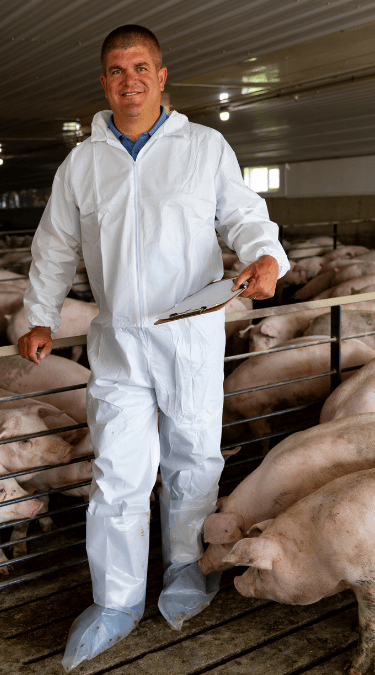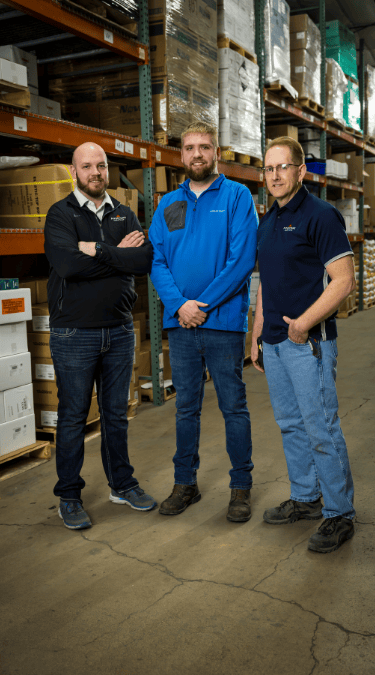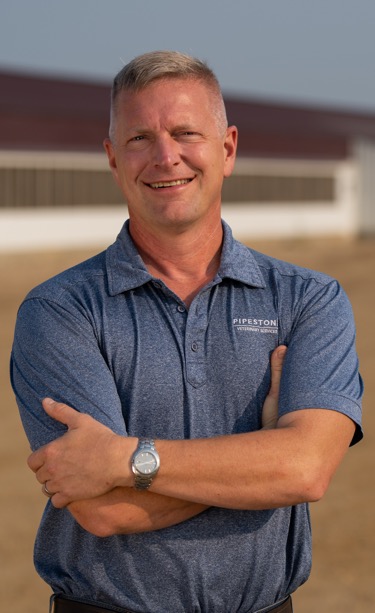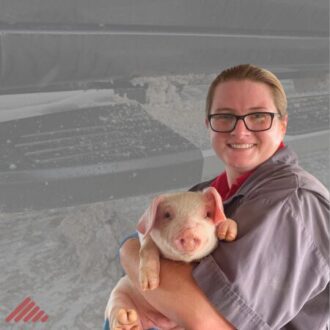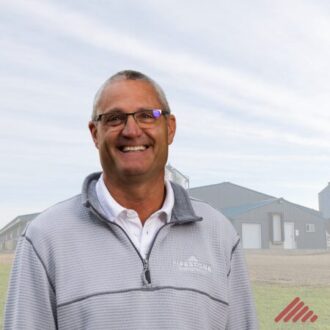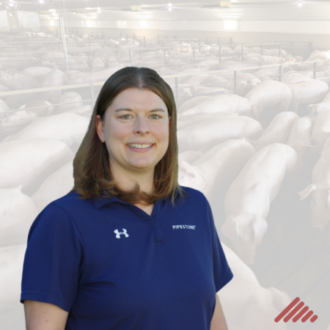Do you think you can impact the health of your piglets in the nursery by what the sow is eating at the sow farm? We had the same question and set out to conduct a research trial to test the idea. If we could improve the health and performance of the pigs in the nursery by simply adjusting the sow ration, what impact would this have on wean pigs, especially in the face of a health challenge?
Trial Set Up
We evaluated BioPlus 2B, a bacillus-based product from Chr. Hansen, added to the complete pig feed. Previous research has shown that sows consuming BioPlus 2B have improved lactation feed intake, weaning weights, and could help lower bacterial load in the farrowing house. In this trial, we evaluated the difference in nursery growth performance and mortality under a porcine reproductive and respiratory syndrome (PRRS) challenge, from pigs weaned from sows fed with or without BioPlus 2B in lactation.
Trial Results & Data
In this Pipestone Nutrition and Pipestone Applied Research trial, 286 weaned pigs from control sows and 288 weaned pigs from BioPlus 2B sows were weaned into our research nursery and acclimated to nursery diets for seven days. Pigs were challenged with PRRS (1-7-4) on day seven in the nursery. Pigs were weighed every seven days until 21 days post-challenge. In the data below, we observed an improvement in average daily gain and feed conversion in pigs from sows fed BioPlus 2B when under a PRRS challenge. This resulted in increased body weight at 21 days in the nursery. One of the most exciting results was the reduction in mortality in pigs weaned from sows fed BioPlus 2B. This demonstrated that the pig can be set up for success while still nursing the sow. We can translate that into performance and mortality improvements in the nursery.
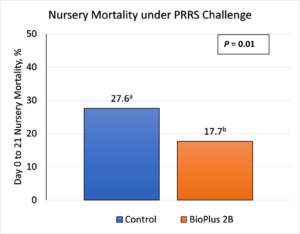
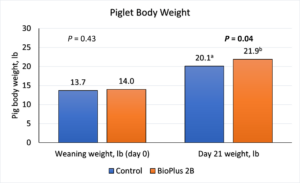
Other yeast-based feed additives have been evaluated and seen similar performance benefits. In a trial conducted at Kansas State University, an improvement in nursery average daily gain was observed when the sows they were weaned from were fed a yeast-based direct fed microbial throughout lactation (Chance et al., 2021).
Sow Nutrition: Lasting Impact on Piglet Health
We continue to see more evidence that we can feed the sow and observe benefits in the health and growth performance of pigs after they have been weaned. Our modern sows continue to demonstrate not only that they can successfully raise more pigs than ever before but also provide additional benefits while the pigs are nursing that continue to help downstream. This interaction between sow nutrition, piglet health, and lifetime productivity is an intriguing frontier that we will continue to research to bring the best piglet to our producers.
